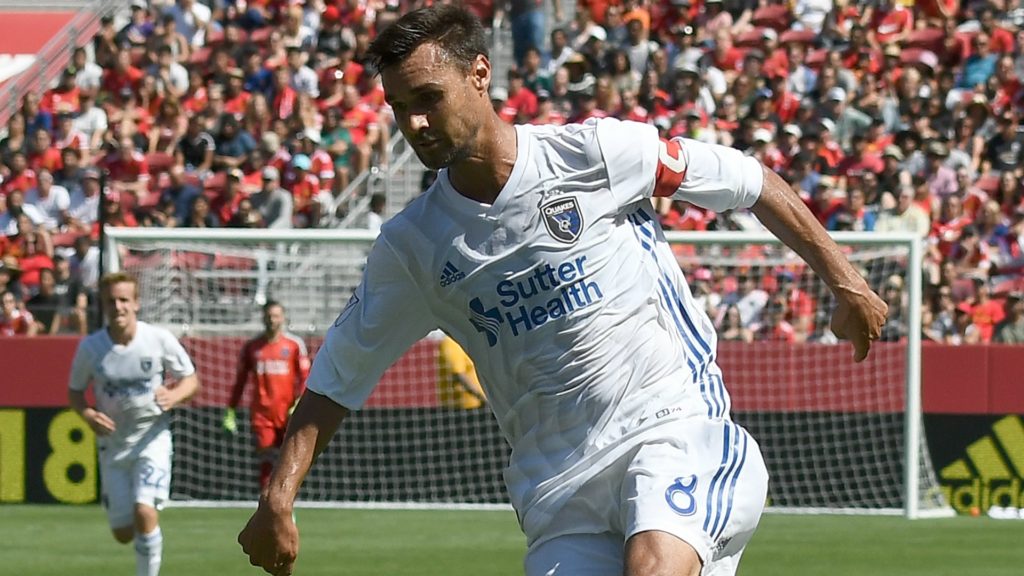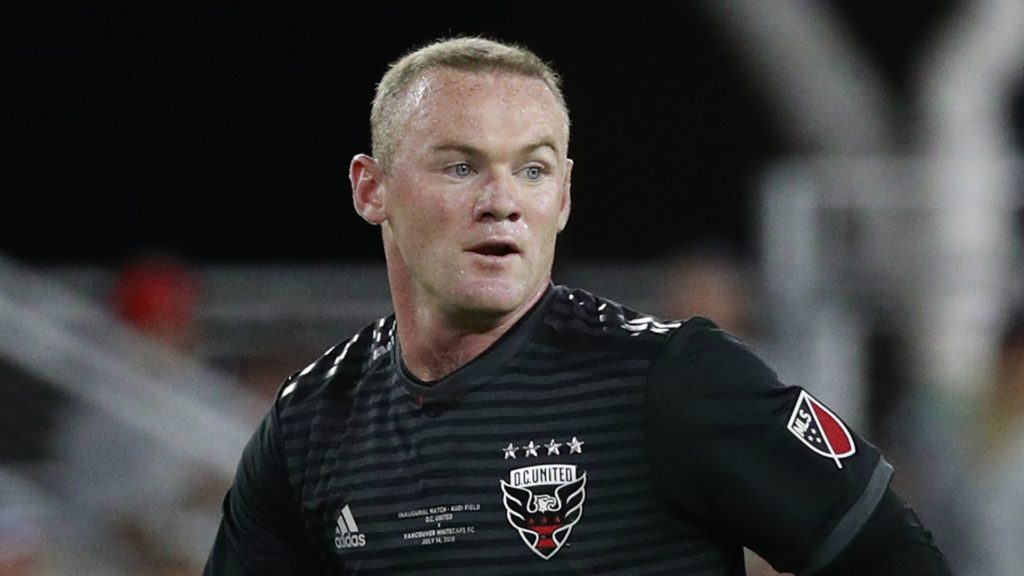Introduction to the MLS fantasy football hosted by FootballCoin
It’s strange to think that one of the most popular football (soccer) leagues in the world is only 25 years old. On December 17th 1993, following a short period of preparation, Major League Soccer was founded. Is it “soccer” or “football” anyway? Debates of which word is correct in describing the sport are ongoing. For the sake of simplicity, we will make this distinction. European fans tend to call “football”, at least, they do nowadays. American fans will tend to refer to it as “soccer”. In trying to respect both groups’ wishes we will use both terms throughout the article, meant to mean the same thing.
At the moment the MLS is one of the most popular football/soccer leagues in the world. The MLS, naturally, benefits from the esteem that the U.S. tends to offer sports in general. This has reflected in a good organisation of the competition, healthy finances for clubs and large audiences.
Starting with the summer of 2019, the MLS is part of the fantasy football contests organized on FootballCoin. This means that every one of the U.S. league’s numerous stars will be represented by a FootballCoin card. Each player may be chosen for a fantasy draft. Each team taking place in the MLS will be featured. Every single game in the league can be chosen for the fantasy contests. It’s as comprehensive as it is likely to get.
This is especially good news for football and fantasy fans from across the world. The likes of the Premier League, La Liga and Serie A all take a break during the summer months. Clubs begin rebuilding their squads for the new season. But, fans will not be left simply having to wait. They will be able to play and get involved in the action of the MLS and its accompanying fantasy soccer.
Just how popular is football in America and where is soccer heading to next?
It’s extremely popular! Here, that settles it. There is a long-running myth that soccer never caught on in the United States. Even shows such as the Simpsons have ridiculed the sports’ chances of success. But, the stats suggest something extremely different.
A 2017 Gallup poll indicated that soccer is the third most popular sport in the USA. Soccer only loses out to basketball and American football, sports that have a longer tradition appealing to American audiences. Furthermore, the same study reports that over 25 million Americans have taken on the habit of playing soccer. Fantasy indoor soccer is also a sport that is gaining momentum.
We have seen a massive shift in attitude when it comes to soccer in the US. Previously, the sport had enjoyed a good reputation as a consequence of players such as Pele acting as ambassadors on behalf of it. But, for the most part, soccer was not mentioned in the same breath as baseball or basketball, some of the traditional sports of the US. Things have changed for the better for the beautiful game. It is not a legitimate force in North America and its community of fans are consistent in their appreciation of soccer.
Soccer continues to grow at a fast pace. While some believed the sport’s popularity in the USA would have peaked at the start of the 2010’s, this has not been the case. Soccer has grown by almost 30% since 2012. Football stars are showing up in greater numbers to play in the MLS. And, there are even, big money deals being prepared. Such was David Beckham’s long-running project to own and integrate a team in the league. Inter Miami, Beckham’s team, is set to start playing in the MLS, as part of league expansion, starting with the 2020/21 season.
Fantasy soccer in the United States of America
It isn’t difficult to understand why fantasy sports tend to be as popular as they are in the USA. In truth, the very concept of fantasy sports originated here. As we mentioned previously, the first such games involved sports such as golf and basketball. The public’s focus with statistics certainly helped create systems that could be easily implemented.
There is no known instance of fantasy soccer, in the US, until the 1990s. Or, at least, if such gaming systems did exist they were not public. It is wholly possible that such contests existed in a simplified form and played between friends. This is precisely the way that fantasy football began in Italy. The system had been created by Riccardo Albini, who himself had been inspired by seeing the Americans’ passion for fantasy sports.
Once the game he had created was deemed to be good enough, he wrote a book containing its rules. From then on the fantasy football concept began being integrated into magazines, radio shows and into popular culture. By the end of the 1990s it was a phenomenon throughout Europe.
Soccer was enjoying its own sharp rise to fame in the US following the success of the 1994 World Cup hosted by the Americans. Fantasy soccer tied two popular concepts together and found a willing audience that has only increased in recent years.
FootballCoin is daily fantasy soccer game that utilizes its own digital asset throughout the game. The XFC cryptocurrency can be used to perform various actions in the game (buying players, registering for private contests). But, it can also be traded or gifted. All in all, it has the same functions as famous cryptocoins such as Bitcoin or Ethereum. FootballCoin’s goal is to create a bridge between the worlds of fantasy sports and that of cryptocurrency.
When was the MLS formed and what existed before it
It is true that Major League Soccer is a relatively newer football league. It was founded in 1988. The first matches in the league were played in 1996 and it originally included 10 teams. Since then the league has grown a steady pace, both in terms of teams added to the competition, as well as in terms of interest for it. For a while it looked like fantasy indoor soccer could rival that of regular soccer. This prophecy, for one, has not yet come true.
There are a few precursors to the MLS competition. The American Football Association was formed in 1884. Then the North American Soccer League ran, with a good deal of success, until it was shut down in 1984. The league famously drew on the talent of soon to retired superstars such as Pele and Franz Beckenbauer.
According to the PlayAmo Canada webpage, This league featured both US and Canadian clubs. Once the NASL closed its doors, the Canadian Soccer League was formed in 1987. As the name suggests, this competition featured only teams from Canada. It was active up until 1992.
There was certainly a need for the creation of the first tier of North American football. First and foremost, FIFA demanded that such a competition exists as a condition for awarding the US the right to host the 1994 football World Cup.
MLS is formed and soccer begins to attract the public’s attention
There were both difficulties and unexpected triumphs in the early stages of the MLS. The league’s first season began one year later than it had been anticipated. Furthermore, two of the teams set to take part pulled out at the last moment.
There were also arguments with some of the players. As the MLS was formed as a limited liability company, it could demand to enforce a salary cap and high control over transfers. The MLS would allocate a set number of big name players to each team in the competition. Some players complained about this. The laws, however, have changed little since then.
What the MLS did have going for it, unlike its predecessors, was an immediate audience response. This had been in no small amount facilitated by the popularity the sport had acquired through organizing the World Cup.
Whereas NASL, despite its fame, generally struggled to find audiences of more than a few thousand for each game, the MLS had fans anxiously awaiting the league’s formation. The MLS was thus able to sign lucrative television deals before any match had even been played.
The USA’s performance in the World Cup and its effect on MLS
After the initial wave of enthusiasm somewhat died down, the MLS entered a period of hardship. Attendance numbers fell, player quality went into decline and the team’s entered a period of financial turmoil. These were only amplified by the poor performance of the USA team in the 1998 World Cup.
Indeed, the overall result of team USA in the World Cup was responsible in great part with inflating or decreasing the public’s interest in soccer. Reaching the Quarter-Finals seemed merely a fantasy before in 2002 USA did just that. Victories against Portugal and Mexico were highly celebrated affairs. And, the country had a new local football hero in Landon Donovan.
The MLS once again attracted the attention of numerous fans. New sponsorship deals meant that clubs could once again towards creating truly competitive teams.
David Beckham and the reemergence of the superstars
Drawing football stars to the league had been the way the NASL had made a name for itself in the 1970s. MLS took a similar approach starting with 2007. First of all, it altered its laws. The Designated Player Rule was introduced. Through it, the MLS could attract bigger star names. The number of foreign players allowed per team was extended. And, in certain cases, the salary cap could be exceeded.
This created the right conditions for David Beckham, one of the most famous footballers in the world at the time, to join the league. Beckham signed for Los Angeles Galaxy. Using his considerable game, Beckham helped extend the popularity of soccer not only in the US, but over its borders as well.
Internationally famous players such as David Villa, Jermain Defoe, Kaka followed suit. The likes of Didier Drogba, Frank Lampard, Sebastian Giovinco, or Wayne Rooney have since applied their trade in the USA. The star power has represented a two-prong attack.
On the one hand, the players’ considerable experience at the top level has meant that teams can benefit from it and improve as organisations. On the other hand, their star profile has made numerous fans from outside the US to pay higher attention to the competition.
Fantasy Soccer in the United States of America and Canada
Given that fantasy sports practically originated in North America, today the USA and Canada are two of the more advanced markets for fantasy soccer. An independent fantasy sports association conducted in a study in 2017 to determine the number of fantasy sports users worldwide. It determined that more than 9 million people in the US and Canada have been involved with fantasy soccer. Of these, at the time of the study, 2 million were active users. (It is rumoured that the MLS is considering merging in the future with the Mexican first tier of football. Whether we will see a fantasy soccer American and Mexican league soon enough, remains to be seen).
It’s an interesting statistic. Especially given the fact that in the UK, arguably the place where fantasy football is most popular, there are 5-6 million active users. Fantasy sports did originate in the US, but soccer was not initially one of the sports associated with the phenomenon. The UK market has had ample time to grow. Fantasy soccer is doing the same in North America. The constant rise in the popularity suggests that there is already significant demand for these type of games. There are tens of millions of fantasy soccer users worldwide.
It’s also interesting to note a distinction between the two markets. The UK and Europe favour the approach of having one team created for the entire season. In the US, however, daily fantasy sports are preferred. FootballCoin is a daily fantasy game, having used the same concept since its inception.
The existing fantasy soccer leagues that include the MLS
As we mentioned, fantasy soccer in the US is currently in its developing stages. There is a grand tradition for fantasy sports which makes the general population more open to the concept. Fantasy sports represent popular games that have had numerous users through the generations. It is, however, also a concept gathering steam and potential, just like the MLS itself.
There are a number of sites that offer games of MLS fantasy soccer. There is a game owned and created by the MLS entity. This is largely built around the concept employed by its Premier League counterpart.
There are also versions that mix the ideas of popular American sports with those of soccer. For example, the ESPN version of the game has users create a roster of … eight players.
FootballCoin offers users the possibility of choosing any of the players active in the MLS. The fantasy soccer picks enter into a daily fantasy competition. Apart from this, FootballCoin has the distinction on including fantasy contests focused on the world’s most popular leagues. Also, the game offers real rewards represented through cryptocurrency.
Is MLS become Europeanized?
It’s a genuine question, often asked. With that being said, many American fans will scoff at this notion. Indeed the US has continuously made efforts to improve its soccer teams and league. The failure to qualify for the 2018 World Cup has meant that a higher focus than ever before has been placed on further enhancing the qualities of the MLS.
But, as with anything, knowledge starts through understanding what rivals have done best in the past. With this in mind, certain measures employed throughout European football have begun being embraced by the US clubs. There is now a higher degree of preparation for the MLS teams’ youth development. New measures hoped to improve competitivity are being considered. And, more than ever before, US players are joining clubs in Europe. Christian Pulisic or Timothy Weah will already be famous with most international audiences.
North American football has attempted to learn from what the very best leagues in the world have been doing successfully. It is clear that the MLS doesn’t merely wish to be popular to a local audience. The desire is to create clubs that can be prosperous soccer clubs on an international level.
What’s the reason for MLS fantasy soccer’s appeal?
Fantasy football is a way in which supporters can truly feel connected to the sport and players they follow. Supporters compete against each other using the knowledge they have accumulated of football. They also get to act out each supporter’s fantasy of managing a top club. When the games are over, they are judged on their choices.
It’s a fantasy soccer game that works on a lot of levels. It works because we all love to build a strong connection with the things that make us feel at ease. Also, it works because supporters get to interact with others who share the same interest. It’s long lasting appeal also has to do with the fact that it requires a good deal of knowledge and intelligence to create an efficient team.
Besides this FootballCoin adds another important element into the mix. As opposed to the other existing fantasy soccer games, FootballCoin allows the users to keep what they win. In other words, the XFC cryptocurrency and assets that can be bought with them, no longer are the property of the game. Their owners are the managers that have won them. Assets in other computer games are only worth something inside of the game. XFC, however, can be traded just like any other major cryptocurrency such as Bitcoin.
Using the fantasy soccer app, or the desktop version?
We live in a computerized world. All modern games need to find a way to keep with the pace of modern living. It’s why just about every fantasy soccer game that hopes to attract an audience can be played using an app. The days of jolting down your choices and submitting them by mail, as was the case with Fantacalcio initially, are long gone.
Of course, FootballCoin has developed its own fantasy soccer app. It is functional on both Android and iOs. Besides this, the FootballCoin developers attempt to keep up to date with the latest news using all popular social media channels.
The game may also be enjoyed directly from a desktop device. Whatever the choice, once an account is created all users will have access to the full database of players, results, the game market, the list of contests, the manager leaderboard etc. MLS is included in FootballCoin together with other competitions such as fantasy soccer Champions League.
Scoring system and fantasy soccer rankings
Soccer or football, in the US and Europe, is played much the same now. Sure, certain rules, in past, applied solely to one area. And, of course, the game is built upon a different foundation in both these places. Overall, the natural path of football is to adapt so that teams can be competitive on an international basis. For the USA the ultimate goal is to become a nation capable of challenging for the World Cup trophy. Such a performance is achievable, naturally, only through having a good league used as a foundation.
Any game of fantasy soccer uses one scoring system, the house rules that influence every participant’s team. Fantasy football is similar to popular simulation games in the vein of a football manager. However, the players are judged upon their real performances in football games. FootballCoin fantasy soccer scoring is based on these events.
The fantasy soccer rankings of games like FootballCoin present the players having won the highest number of points. Stats are readily available and, by and large, represent the sure true way to ensure success in the game. A fantasy soccer trophy is not won without putting some effort into it.
FootballCoin also includes a leaderboard dedicated to the fantasy managers. It presents their results in recent contests, as well as their overall performance since joining the game. Those interested may check the managers’ stats and get a better understanding of their rivals’ strengths.
The MLS is filled with stars. How many of them can my team afford?
The MLS franchise has always tended to function in a way where the number of existing star players were split between the existing teams in the league. This guarantees that fans of every team have a reason to be invested in their team’s progress.
The majority of fantasy soccer games include a system that features a maximum transfer budget. The available players are rated and given a transfer price. The manager then has to choose their fantasy soccer picks so that the total worth of the team players do not exceed the budget cap.
Such restrictions do not exist in FootballCoin! Managers can choose to have as many football stars as they wish. Or, they can choose to have none at all. Players in the game are represented by FoootballCoin cards ranked up to 5*.
The players ranked with 2* are free to be chosen by any manager in the game. They represent the vast majority of players in the game, at the moment. When it comes to the MLS, it has been decided, that almost every single player in the league be represented by a free player card. This should give managers ample room to manoeuver within their squad.
Fantasy soccer leagues
FootballCoin has aimed since its beginning to host the most competitive football leagues in the world. Major League Soccer was added to the roster in 2019. The league is one of the most watched competitions in the world. Furthermore, the league’s schedule helps fantasy managers transition from one season to another. Currently, the majority of competitions in Europe are suspended during the summer period.
With almost all of the leagues featured in the game, FootballCoin, based on demand, organises free contests. Matches from that particular league are selected for the contest. The participants do not have to pay an entry fee. They select a fantasy soccer mock draft before saving it. Their team drafts comprise of players active for the team’s whose matches have been selected.
FootballCoin also offers managers the chance of creating their own fantasy soccer league. What they need to do is set up the contest themselves. They may choose the league and matches. An entry fee may also be chosen with the organizer receiving a percentage of the prize pool. The name of the fantasy league may be chosen by the organizer. And the fantasy soccer team names may be chosen by each organizer.
The smallest of private contests can include up to 11 participants. If the manager also happens to be the owner of a stadium card ranked 3* or higher, the competition may include more participants. For example, contests organized on a 5* stadium feature no restriction in terms of the number of managers that may join. The organizer not only chooses matches featured in the contest but also benefits from receiving a cut from the prize pool. Quite profitable indeed!
The MLS and the collectible card system
Collectible cards, and collectors items overall have been part of the soccer culture for a decade. In keeping with this tradition, FootballCoin decided to use this model as a visual representation for the game. All of the players featured in the game are represented by these cards that are ranked up to 5*.
The majority of the cards are ranked with 2*. These are free. They can be used by any manager. However, the cards representing some of the elite players are represented by cards ranked with 3*,4*, or 5*. These cards are issued as digital tokens, each of them unique, creating on the blockchain. Only those that own the cards may use them in the game.
Once a manager purchases, or is gifted a card, they become the sole owner of it. FootballCoin no longer has any claim over it. Therefore the owner may choose to hold on to them, to sell them, to gift etc. In many ways, the cards are investments. They reward a manager’s faith in a player’s evolution.
What about the players no longer available in MLS fantasy soccer?
There comes a time when every player must say goodbye to the beautiful game. Besides this, the transfer market has never worked quite as intensely as it does today. What happens if a player for which you’ve purchased a card, no longer is available in the MLS, or another league featured in FootballCoin?
The fantasy soccer manager system employed by FootballCoin allows for player cards to never truly lose their value. A player that is no longer available in the game, because of a transfer, or because they have retired, becomes an Assistant Manager.
The Assistant Manager is a position that must be filled up in every fantasy draft. The AM receives points automatically depending on their ranking. For example, an Assistant Manager represented by a player card ranked with 5* earns 15 points. This means that each time your team plays and choose him for your draft, the team will automatically receive 15 extra points. Not a too shabby deal.
Fantasy MLS tips and tricks
Arsene Wenger talked about the need for constant preparation in football. “If you put the wrong petrol in the car, it’s not going to go very far. For a human being, it’s exactly the same, you have to prepare the right way.” Fantasy soccer rankings work in a similar way. It requires that managers constantly remain up to date with stats, news, and adapt their unique strategies to best fit their objectives.
FootballCoin attempts to keep managers informed about all the most important events in the world of football through its news page and social media channels. Fantasy soccer scout articles are written, in an attempt to offer managers additional info about which players they can pick. Fantasy soccer predictions are made by the game’s community. Most importantly, detailed stats of all the players are available on the FootballCoin website. By studying the stats, managers can make informed decisions about who it’s best that they have in their squad.
The futures of Major League Soccer, fantasy football and FootballCoin
The future is inescapable and it usually belongs to those that are prepared to meet. The FootballCoin developers foresee a time when blockchain technology will become an even more powerful force than it is at the moment. Sure, cryptocurrency such as Bitcoin, Ethereum, Ripple or XFC, are traded, used to make payments etc. However, the implications of blockchain technology are likely to be even greater.
Through consistent work, the FootballCoin platform is now fully functional. It features a healthy economic ecosystem that in the future that is shaped by the decisions of the fantasy soccer community. The FootballCoin developers have attempted to offer a demonstration of how the blockchain technology may be able to power ideas of all types in the future.
Fantasy soccer us an idea that gives people all around the world. Since its beginning, in the 1990s the number of those interested in fantasy football has grown at a steady pace. It goes without saying that football itself is a phenomenon that continues to grow, finding loyal fans across the globe.
FootballCoin’s mission
The vision for the FootballCoin game has remained the same since its very beginning. The goal is to create a bridge between the worlds of blockchain technology, cryptocurrency trading and fantasy sports. The aim is also to create a model that is self-sustainable, powered by the interest of the members of the community.
With each passing day, the ultimate goal of the mission seems more attainable. FootballCoin will continue to support quality competitions such as the MLS. It will also continue to strive to improve, offer security and consistent quality. Continuing to prepare for the future and facing the challenges of today, FootballCoin looks eagerly towards reaching its lofty objectives.






